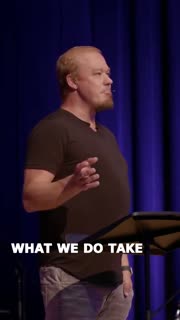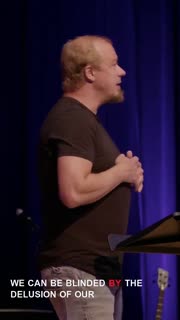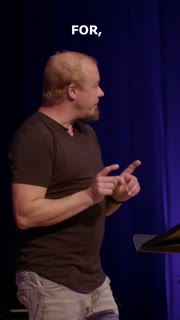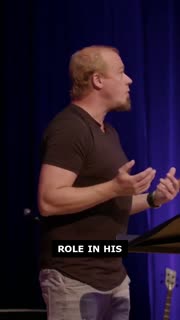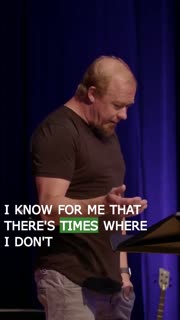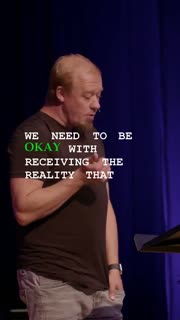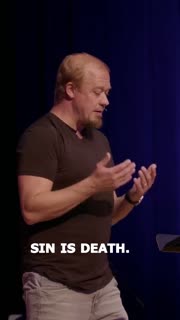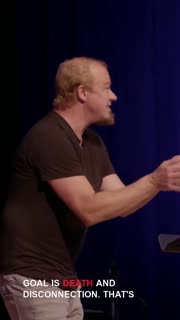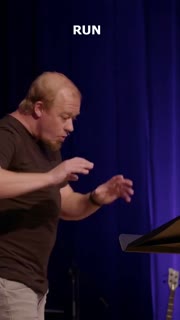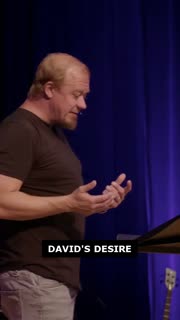Restoration Through Repentance: Lessons from Psalm 51
Devotional
Sermon Summary
Bible Study Guide
Sermon Clips
1. "What we do take serious is the devastation of sin and the reality of sin. I just want to give you a little bit of a heads up. If you are visiting today, like I said, if you're a little bit lighthearted, today might be just a little bit heavier than we're used to. So just a disclaimer there for everybody in that." [02:20] (16 seconds)
2. "We can be blinded by the delusion of our sin. We can be blinded to believe that, well, things like no one will ever find out about it, right? And, and why do I use the term to say that David is blinded? Maybe you're, you're wondering that question. Here, here's why. David, David knows God, right? It's, it's true. David knows about God. He knows who God is, what God's capable of." [08:00] (24 seconds)
3. "I think it's true for, for, for any of us, including myself who, who walk with Jesus. It's important to stop and ponder how often can, can we easily fall into sin's blind spot, right? I know some of us, we do, we truly know God. We love God and we desire to follow God. We know him personally. There's, there's no question in that. But yet, can we, can we be honest? And there may be some times when we're, we're, we're just also blinded by our sin." [09:15] (29 seconds)
4. "Without God's role in his extending his kindness and bringing David, someone like Nathan, to, to, to bring his sin to light, right? Where would he be? But that's who God is. Like, like says in Romans, he says, you presume on the riches of his kindness and forbearance and patience. Not knowing that God's kindness is meant to lead us to repentance." [11:55] (21 seconds)
5. "I know for me that there's times where I don't always thank God for his conviction, right? I'm not always as pumped when I'm convicted of my sin, right? I don't always appreciate when someone confronts me. My sin. But, but how, how short-sighted is that, right? What, what a gift those things are in our lives. How kind is God to show us that we can come to repentance?" [12:30] (22 seconds)
6. "We need to be okay with receiving the reality that we sin. Not be okay with sin, but that we do, right? Not be okay with our sin, but the reality that we do sin. To be okay with the knowledge that we're capable and we're culpable of and for sin. And, and I know that's typically not something we want to just, we enjoy talking about in our, in our world, right?" [21:53] (27 seconds)
7. "Sin is death. We see, Paul says this in Romans 6, 23, for the wages of sin is death, but the free gift of God is eternal life in Christ Jesus our Lord. And so, sin leads to death. Now, not always immediate death, but we do see examples of that. We see loss of life, right? In some cases, we see that with David's sin against Uriah. We see that with the loss of his son, yet the reality, here's the reality of sin. Sin is death that affects all, all of life." [26:32] (34 seconds)
8. "Sin's goal is to disconnect us from God and to disconnect us from others. Sin's goal is death and disconnection. That's the reality. It's, it's, it's why so many marriages fracture, because of sin's presence. It's why so many families, family units break down. It's, it's sin's prominence. It's why so many fail to just know that there's a God who loves them, right? That's sin's permanence." [27:53] (22 seconds)
9. "We don't run away. We run towards. The path is refuge. We turn towards the path of refuge. We turn towards the path of refuge. We turn towards the path of refuge. We run to the Father. That's what we do. And we run with this repentance. We turn away from the sin that's desire is just to separate us, which is about, is desires to bring death." [34:05] (20 seconds)
10. "So what's David's desire once he has this restoration? It's he wants to teach others the beauty of a God who offers redemption, who offers reconciliation, and church, that's what we are called to do as well. This is what Paul talks about in 2 Corinthians. He says this, all this is from God, who through Christ reconciled us to himself and gave us the ministry of reconciliation." [36:24] (24 seconds)
Ask a question about this sermon
2. "We can be blinded by the delusion of our sin. We can be blinded to believe that, well, things like no one will ever find out about it, right? And, and why do I use the term to say that David is blinded? Maybe you're, you're wondering that question. Here, here's why. David, David knows God, right? It's, it's true. David knows about God. He knows who God is, what God's capable of." [08:00] (24 seconds)
3. "I think it's true for, for, for any of us, including myself who, who walk with Jesus. It's important to stop and ponder how often can, can we easily fall into sin's blind spot, right? I know some of us, we do, we truly know God. We love God and we desire to follow God. We know him personally. There's, there's no question in that. But yet, can we, can we be honest? And there may be some times when we're, we're, we're just also blinded by our sin." [09:15] (29 seconds)
4. "Without God's role in his extending his kindness and bringing David, someone like Nathan, to, to, to bring his sin to light, right? Where would he be? But that's who God is. Like, like says in Romans, he says, you presume on the riches of his kindness and forbearance and patience. Not knowing that God's kindness is meant to lead us to repentance." [11:55] (21 seconds)
5. "I know for me that there's times where I don't always thank God for his conviction, right? I'm not always as pumped when I'm convicted of my sin, right? I don't always appreciate when someone confronts me. My sin. But, but how, how short-sighted is that, right? What, what a gift those things are in our lives. How kind is God to show us that we can come to repentance?" [12:30] (22 seconds)
6. "We need to be okay with receiving the reality that we sin. Not be okay with sin, but that we do, right? Not be okay with our sin, but the reality that we do sin. To be okay with the knowledge that we're capable and we're culpable of and for sin. And, and I know that's typically not something we want to just, we enjoy talking about in our, in our world, right?" [21:53] (27 seconds)
7. "Sin is death. We see, Paul says this in Romans 6, 23, for the wages of sin is death, but the free gift of God is eternal life in Christ Jesus our Lord. And so, sin leads to death. Now, not always immediate death, but we do see examples of that. We see loss of life, right? In some cases, we see that with David's sin against Uriah. We see that with the loss of his son, yet the reality, here's the reality of sin. Sin is death that affects all, all of life." [26:32] (34 seconds)
8. "Sin's goal is to disconnect us from God and to disconnect us from others. Sin's goal is death and disconnection. That's the reality. It's, it's, it's why so many marriages fracture, because of sin's presence. It's why so many families, family units break down. It's, it's sin's prominence. It's why so many fail to just know that there's a God who loves them, right? That's sin's permanence." [27:53] (22 seconds)
9. "We don't run away. We run towards. The path is refuge. We turn towards the path of refuge. We turn towards the path of refuge. We turn towards the path of refuge. We run to the Father. That's what we do. And we run with this repentance. We turn away from the sin that's desire is just to separate us, which is about, is desires to bring death." [34:05] (20 seconds)
10. "So what's David's desire once he has this restoration? It's he wants to teach others the beauty of a God who offers redemption, who offers reconciliation, and church, that's what we are called to do as well. This is what Paul talks about in 2 Corinthians. He says this, all this is from God, who through Christ reconciled us to himself and gave us the ministry of reconciliation." [36:24] (24 seconds)
